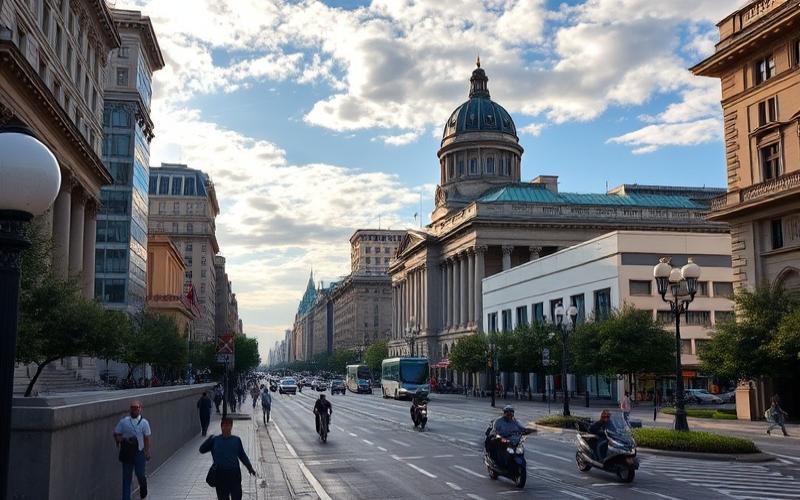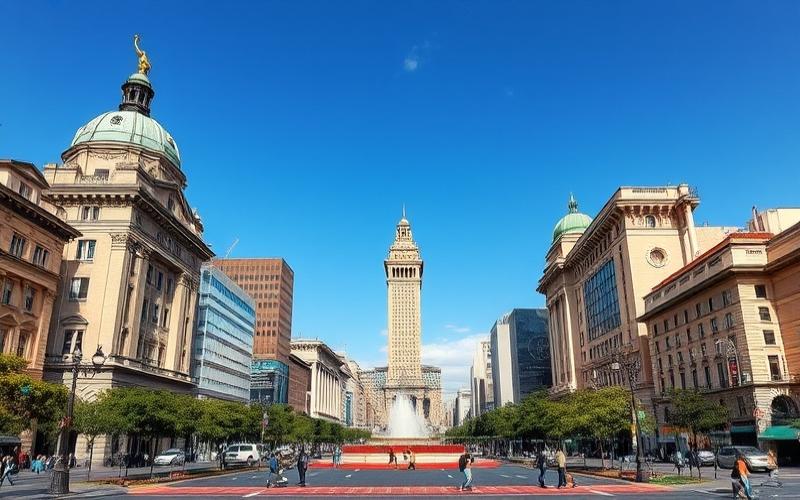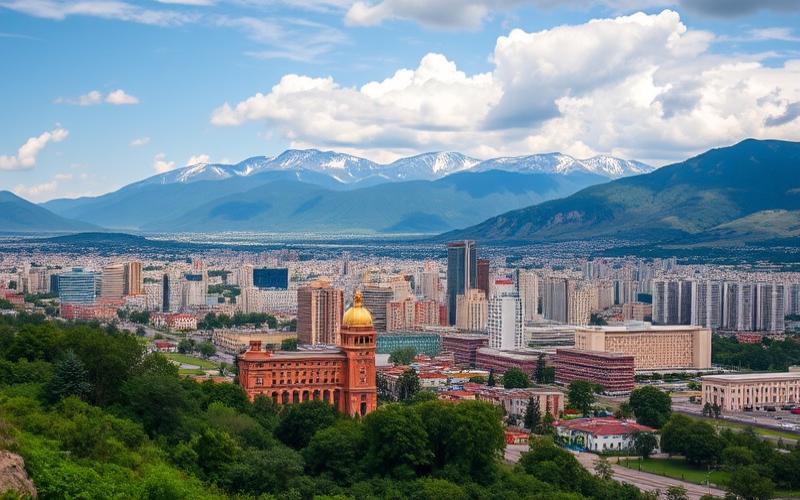
 Published on and written by Cyril Jarnias
Published on and written by Cyril Jarnias
Argentina, with its vast landscapes and vibrant cities, offers a well-developed public transportation network that allows for efficient travel throughout the country. Whether you’re a newly arrived expatriate or a long-term traveler, this guide will provide you with all the keys to mastering Argentine transportation.
From Buses to Trains: Overview of Transportation Options
Buses: The Kings of Argentine Roads
Buses are undoubtedly the most popular and developed means of transportation in Argentina. There are two main types of services:
- “Colectivos” or “bondis”: These are urban buses that crisscross the cities. In Buenos Aires, for example, over 135 lines cover the capital 24/7.
- “Micros”: These long-distance buses connect different cities across the country. They are very comfortable, with reclining seats and sometimes even sleeping berths for overnight trips.
The Subway: The Fast Option in the Capital
Buenos Aires is the only city in Argentina with a subway system, called “Subte.” With its 6 lines, it allows for quick travel throughout downtown, avoiding surface traffic.
Trains: A Developing Alternative
Although the Argentine railway network is not as extensive as it once was, it remains an interesting option for certain routes, particularly around Buenos Aires. Modernization efforts are underway to improve this service.
Taxis and Ride-Sharing Services for More Flexibility
In major cities, taxis are plentiful and relatively affordable. Ride-sharing apps like Uber or Cabify are also available in some urban areas.
How Much Does It Cost? Transportation Budget for an Expatriate
Affordable Urban Transportation Rates
The cost of public transportation in Argentina is generally very affordable, especially compared to European standards. Here are some sample fares in Buenos Aires:
- Urban bus: between 18 and 23 pesos per trip (approximately $0.15 to $0.20)
- Subway: flat rate of about 30 pesos ($0.25)
- Commuter train: 15 to 35 pesos depending on distance ($0.13 to $0.30)
Good to Know:
These rates apply when using the SUBE card, essential for using public transportation in many Argentine cities. It costs about 60 pesos ($0.50) and can be easily reloaded.
Monthly Budget for an Expatriate
For an expatriate living in Buenos Aires and regularly using public transportation, the estimated monthly budget is between 1000 and 1500 pesos ($8 to $13). This amount may vary depending on your travel habits and occasional use of taxis.
Long-Distance Buses: An Investment for Traveling
For intercity trips, bus prices vary considerably depending on distance and comfort level chosen. For example:
- Buenos Aires – Córdoba (700 km): starting at 5000 pesos ($43) in semi-cama class
- Buenos Aires – Ushuaia (3200 km): starting at 20000 pesos ($170) in cama class
Tips to Optimize Your Travel
1. Invest in a SUBE Card
This rechargeable card is essential for using public transportation in many Argentine cities. It will allow you to benefit from preferential rates and avoid needing change for every trip.
2. Plan Your Long-Distance Trips in Advance
Intercity buses are very popular and can be fully booked, especially during holidays. Reserve your tickets a few days in advance to get the best rates and ensure you have a seat.
3. Download Useful Apps
Apps like “Cómo Llego” in Buenos Aires will help you find the best public transportation routes. For taxis, prefer official apps like “BA Taxi” to avoid scams.
4. Take Advantage of Tourist Passes
Some cities offer passes that allow unlimited use of public transportation for a set period. This is an interesting option if you plan to travel frequently.
5. Be Vigilant at Night
Although public transportation is generally safe, remain alert during nighttime travel, especially in large cities.
Good to Know:
Outside major cities, public transportation options may be more limited. In such cases, renting a car can be an interesting alternative for exploring certain regions.
By mastering the Argentine transportation system, you will not only achieve substantial savings but also experience a more authentic local lifestyle. Don’t hesitate to ask locals for advice—Argentines are known for their warmth and hospitality!
Disclaimer: The information provided on this website is for informational purposes only and does not constitute financial, legal, or professional advice. We encourage you to consult qualified experts before making any investment, real estate, or expatriation decisions. Although we strive to maintain up-to-date and accurate information, we do not guarantee the completeness, accuracy, or timeliness of the proposed content. As investment and expatriation involve risks, we disclaim any liability for potential losses or damages arising from the use of this site. Your use of this site confirms your acceptance of these terms and your understanding of the associated risks.

























